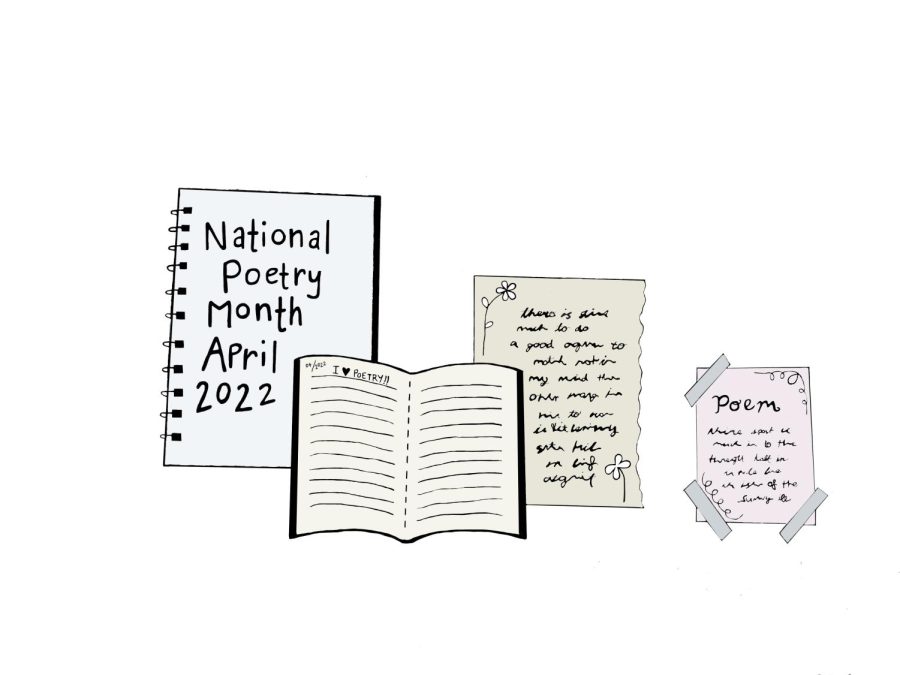Finishing the semester poetically
Ways to get involved in National Poetry Month even if you’re busy or inexperienced
April marks National Poetry Month, a celebration of poetry introduced in 1996 by the Academy of American Poets.
Trinity students going about Coates Library may have already noticed a small curated shelf in front of the staircase featuring relevant books and a scannable QR code linking to Poets.org’s Poem-a-Day series. By following the link, passersby can sign up for a daily poem in their inbox or look around the site to learn about the organization, past and present guest editors and further ways to get involved. This April, Poem-a-Day is curated by award-winning Trinity alumna Naomi Shihab Nye, class of ‘74. For those interested in her catalog of work, which features themes of cultural similarity and difference; time and place; and a special fondness for San Antonio, Coates Library carries multiple copies of her books such as “You & yours” and “19 Varieties of Gazelle: Poems of the Middle East.”
Even with all these resources available to start reading it, writing poetry can still be daunting in the face of inexperience. The good news is that poetry has no rules. If that doesn’t inspire you to open your journal and start a stream-of-consciousness, though, the other good news is that poetry can have as many rules as you want. “Found poetry,” such as blackout poetry and collage poetry, can help those struggling to find their own words. Strict and short forms such as haiku, tanka or limerick can become a puzzle to find the right beat to express a short story or descriptive image.
But maybe the external influence, feedback and instruction of a writing class is the push you need. Looking to the fall, Trinity’s English department offers a poetry writing course which students who still need their Creative Expression credits could consider as registration continues. Though the deadline has passed for this spring’s edition, the annual Trinity Review literary magazine offers monthly prompts to guide and inspire students who wish to write on their own time. Previous years’ submissions can be read on their website as well.
April may have been especially busy due to the shortened semester, but taking a moment to read or write a poem might offer some emotional respite you’ll find valuable. So if you’re stressed, consider opening up your Notes app. Poetry doesn’t have to be perfect — besides, you can always polish things up over the summer.

My name is Katy and I am an arts and entertainment reporter and columnist for the Trinitonian, formerly a copy editor. I am a senior graduating in December...











